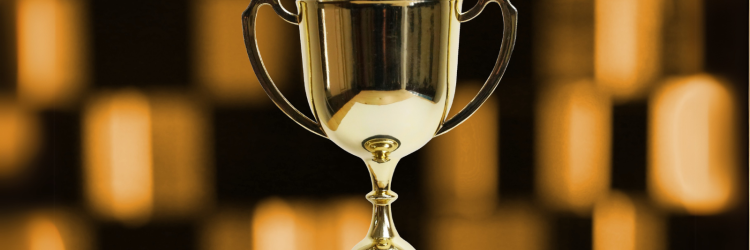The Global Innovation Awards that ITL and the International Insurance Society handed out last week were, first and foremost, a celebration of the great strides being made across the entire insurance industry. We received dozens and dozens of almost universally high-quality nominations from all corners of the world.
The three winners coalesced around a theme: resilience. One winner focused on individual resilience, one on property resilience, and one on societal resilience.
I suspect you're not shocked, if you read Six Things more than occasionally, to know that I heartily endorse that emphasis for the industry. As I've written many times, I hope we shift more toward a Predict & Prevent model and stretch beyond our traditional work helping people recover after a loss.
But these awards (sponsored by Lloyd's) aren't just me talking. I led a panel of distinguished judges that winnowed the nominations down to three finalists in each category, but two of the winners were chosen by the executive committee of the IIS and the third was selected by attendees at the IIS's Global Insurance Forum.
So I'm going to take the whole awards process as not just demonstrating broad, keen innovation but as showing that the industry is rallying behind the Predict & Prevent model.
Let's look at the winners.
The winner of the Predict & Prevent category was Whisker Labs, whose Ting device plugs into an electrical outlet in a home and monitors for anomalies in voltage that indicate a short circuit could occur and cause a fire. When a problem is detected, the device notifies Whisker Labs, which arranges for an electrician to go to the home and fix the problem.
The Ting device is now in a million homes in the U.S., and Whisker Labs says that number is growing by 50,000 a month — State Farm, Nationwide, and a number of other insurance companies provide the device and service to policyholders at no charge.
Whisker Labs says it prevents four out of five fires that would occur in the homes that deploy the Ting. In total, the company estimates it has prevented 15,000 electrical fires. Statistically, preventing that many fires suggests that Ting has saved a number of lives.
The company is about to start expanding outside the U.S. It is also working with utilities to provide alerts about anomalies that can be detected in the grid by what amounts to a network of Ting sensors. Those alerts could be useful in preventing wildfires because the grid can show that it is under stress well before an electric arc lights vegetation on fire.
Whisker Labs has pretty much been the poster child for Predict & Prevent around The Institutes, including at ITL. If you're interested in learning more, you might check out an interview I did with the CEO a year ago or a podcast that Pete Miller, the CEO of the Institutes, did with him a year and a half ago. More broadly, I encourage those interested in the topic to subscribe to the Predict & Prevent newsletter that Pete produces. He's been teeing up lots of companies that could be the Whisker Labs of the future.
The winner in the Property/Casualty category was the Tripartite Program led by the Insurance Development Forum (IDF). The other two partners are the United Nations Development Program, which helps coordinate with national governments, and the German Federal Ministry for Economic Cooperation and Development, which has provided EUR$30 million in funding.
The Tripartite Program offers public/private risk financing and insurance programs around the world that drive resilience against the impacts of climate risk and natural hazards. The program draws on $5 billion of insurance capacity that the IDF has arranged. So far, the program has deployed $2.2 billion of that capacity in 23 countries, with 18 million beneficiaries. The program also provides expertise on modeling and on risk mitigation techniques.
Ekhosuehi Iyahen, the secretary general of the IDF, said she's looking for partners — and not for charity but for the myriad business opportunities she's encountering.
The winner in the Life, Health and Retirement category was a venture involving Hannover Re and HealthOme (soon to be known as Kadance). The venture provides a sort of overlay of healthcare based on genomic testing and counseling. The venture initially is focusing on cancer but is preparing to expand into care for other diseases.
When a client is diagnosed with cancer, HealthOme conducts genetic testing that can shed light on how the person will react to potential treatments. For instance, Julian Whitekus, vice president, health solutions at Hannover Life Reassurance Co. of America, said in his presentation to the IIS executive committee that testing determined that a patient wouldn't metabolize a standard cancer drug well. The testing also determined that an antidepressant she was given could interfere with the cancer drug. In fact, she didn't respond well in the early days of her treatment, so her doctors agreed to switch to different medications. This time, she responded quickly. She's now in remission.
Those winners make a might impressive group: Whisker Labs making homes and perhaps electric grids more resilient; the IDF and the Tripartite Program helping countries around the world be more resilient in the face of climate change; and the Hannover Re venture with HealthOme using genomics to help individuals be more resilient when attacked by cancer.
But that's now yesterday's news. I can't wait to see what comes next.
Cheers,
Paul


